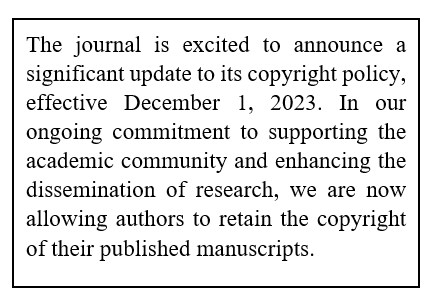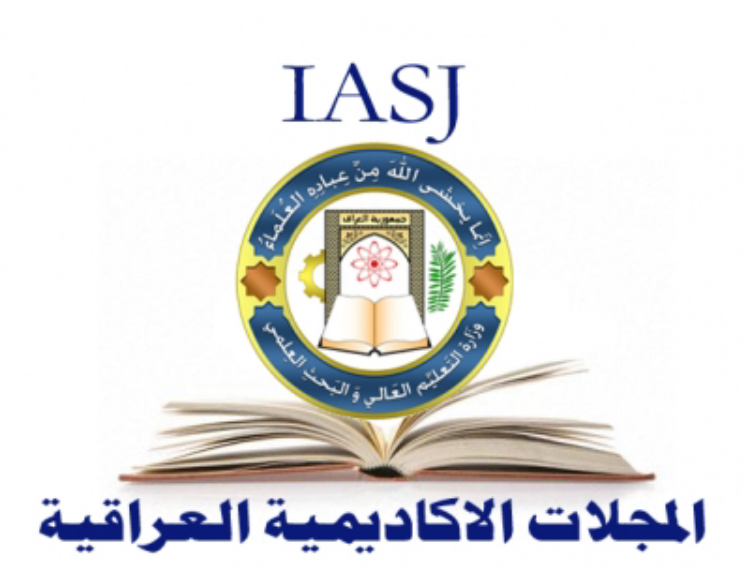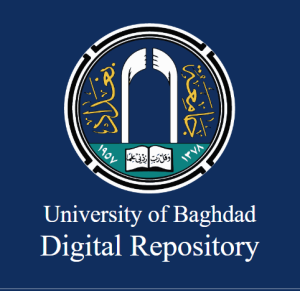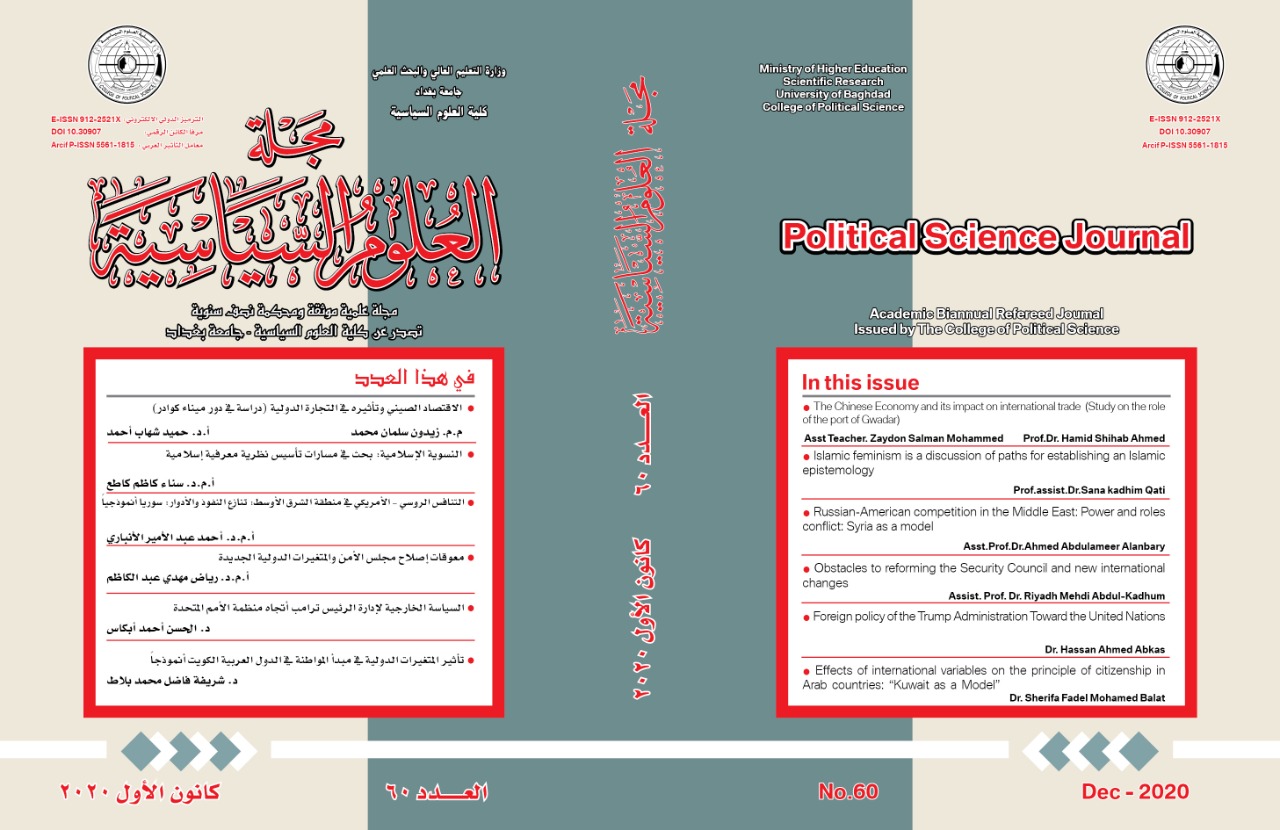Ideology and Political System in the Kingdom of Saudi Arabia, and the Islamic Republic of Iran (A comparative study)
DOI:
https://doi.org/10.30907/jcopolicy.vi67.690Keywords:
ideology, religion, Wahhabism, guardianship of the jurist (welayat al-faqih)Abstract
All political regimes in the countries of the world do not operate randomly. Rather, they must have a clear and explicit ideological framework of political beliefs and directives that they explicitly disclose, or leave implicitly to reveal in the form of social action issued by the state. This statement applies to all political regimes. Regardless of its simplicity and complexity, ideology has an important role in the movement of political regimes, their effectiveness, and their ability to influence.
Thus, the founders of the political regime in the Kingdom of Saudi Arabia and the Islamic Republic of Iran were keen to employ religious ideology in political life in order to sanctify political authority and give the character of legitimacy to political authority. Religion would be pivotal to the issue of legitimacy because it provides a moral and cultural basis through the use of simple, and relevant language of religious character with the aim of building ideological legitimacy. However, this employment in both regimes meets at certain points, and intersects at others, due to the difference in the ideological starting point of the two regimes resulting from the sectarian difference.
References
إبراهيم، فؤاد. 2012. الفقيه والدولة: الفكر السياسي الشيعي. بيروت: د ط، دار المرتضى.
إبراهيم، خضير. 2017. مفهوم الأيديولوجيا (مطالعة في تاريخ المصطلح ومعانيه ومجالات استعماله. مجلة الاستغراب. العدد6، السنة الثاني.https://istighrab.iicss.iq/?id=43&sid=151
إبراهيميان، أروند. 2014. تاريخ إيران الحديث: ترجمة مجدي صبحي. الكويت: د ط، المجلس الوطني للثقافة والفنون.
أبو زهرة، محمد. (د ت). تاريخ المذاهب الإسلامية. القاهرة: د ط، دار الفكر العربي.
بن عبد العزيز، موضي. 1993. الهجر ونتائجها في عصر الملك عبد العزيز. لندن: ط1، دار الساقي.
تويال، فرنسو. 2007. الشيعة في العالم: صحوة المستبعدين واستراتيجياتهم، ترجمة نسيب عون. بيروت: ط1، دار الفارابي.
الخميني. 2000. البيع. إيران: ط1، مؤسسة العروج.
---. الحكومة الإسلامية. بيروت: ط1، دار الولاء.
الدرويش، أحمد عبد الرزاق. 2003. فتاوى اللجنة الدائمة للبحوث العلمية والإفتاء والدعوة والإرشاد. الرياض: ج2، دار المؤيد.
درويش، مديحة أحمد. 1980. تاريخ العربية السعودية في الربع الأول من القرن العشرين. القاهرة: ط1، دار الشروق، القاهرة.
الرشيد، مضاوي. 2005. تاريخ العربية السعودية بين القديم والحديث: ترجمة عبد الإله النعيمي. بيروت: ، ط2، دار الساقي.
ريشار، يان. 1996. الإسلام الشيعي عقائد وإيديولوجيات: ترجمة حافظ الجمالي. بيروت: ط1، دار عطية للطباعة والنشر.
ريكور، بول. 2002. محاضرات في الإيديولوجيا واليوتوبيا: ترجمة: فالح رحيم. بيروت: ط1، دار الكتاب الجديدة المتحدة.
زائد، أحمد. 1985. الدولة في العالم الثالث. القاهرة: ط1، دار الثقافة.
زكريا، فؤاد. 1986. الحقيقة والوهم في الحركة الإسلامية المعاصرة. القاهرة: دار الفكر للدراسات والنشر والتوزيع.
الزين، محمد حسين. 1979. الشيعة في التاريخ. بيروت: دار الآثار للطباعة والنشر والتوزيع.
السماوي، مهدي. 1979. الإمامة في ضوء الكتاب والسنة. القاهرة: د ط، دار الزهراء للطباعة والنشر والتوزيع.
السيف، توفيق. 1999. ضد الاستبداد: الفقه السياسي الشيعي في عصر الغيبة. المغرب: د ط، المركز الثقافي العربي.
الشاوي، توفيق محمد. 1995. فقه الحكومة الإسلامية بين السنة والشيعة-قراءة في فكر الثورة الإيرانية: بيروت: ط1، دار النفائس.
غلوزماير، ايريس، راشيل برونسون، غيدو شتاينبرغ، بول ارتس. 2012. "المملكة العربية السعودية في الميزان الاقتصاد السياسي والمجتمع والشؤون الخارجية." علماء الدين الوهابيون والدولة السعودية (من العام 1745 إلى يومنا هذا)، تحرير غيدو شتاينبرغ، 33-56. بيروت: مركز دراسات الوحدة العربية.
عفان، محمد. 2016. الوهابية والإخوان: الصراع حول مفهوم الدولة وشرعية السلطة. بيروت: ط1، جسور للترجمة والنشر.
عماد، عبد الغني. 2016. السلفية والسلفيون: الهوية والمغايرة، قراءة في التجربة اللبنانية. بيروت: د ط، مركز الحضارة لتنمية الفكر الإسلامية.
عنايت، أحمد. 1989. الفكر السياسي الإسلامي المعاصر: ترجمة إبراهيم الدسوقي. القاهرة: د ط، مكتبة مدبولي.
فاسيلييف، أليكسي. 1986. تاريخ العربية السعودية: ترجمة: خيري الضـامن وجـلال الماشـطة. موسكو: ط1، دار التقـدم.
الفقير، بدر بن عادل. 1999. عناصر القوة في توحيد المملكة العربية السعودية (دراسة تحليلة في الجغرافيا السياسية). المملكة العربية السعودية: الأمانة العامة للاحتفال بمرور مائة عام على تأسيس المملكة، 1999.
القمي، محمد بن علي بن الحسين بن بابوية. 1957. عيون أخبار الرضا. إيران: د ط، دار العلم.
الكاتب، احمد. 2008. تطور الفكر السياسي السني نحو خلافة ديمقراطية. بيروت: مؤسسة الانتشار العربي.
غلوزماير، ايريس، راشيل برونسون، غيدو شتاينبرغ، بول ارتس. 2012. "المملكة العربية السعودية في الميزان الاقتصاد السياسي والمجتمع والشؤون الخارجية." السياسة بين الإسلاميين والليبراليين في المملكة العربية السعودية، تحرير لاكروا، ستيفن. 57-82. بيروت: مركز دراسات الوحدة العربية.
المراغي، فتحي أبو بكر. 2017. ولاية الفقيه في العقل المذهبي والسياسي الإيراني المعاصر(المحددات الفكرية للتيار المعارض). مجلة الدراسات الإيرانية، السنة الأولى، العدد الثاني.
المظفر، محمد رضا. 1968. عقائد الامامية. النجف الأشرف: د ط، مكتبة الأمين.
ناصر، شحاته محمد. 2011. سياسة النظم الحاكمة في البحرين والكويت والعربية السعودية في التعامل مع المطالب الشيعية. بيروت: ط1، مركز دراسات الوحدة العربية.
النجار، حسين فوزي. (د ت). الإسلام والسياسية. القاهرة: مطبوعات الشعب.
النعيمي، سلطان محمد، مع مجموعة مؤلفين. 2018. قراءة مغايرة لولاية الفقيه. الرياض: المعهد الدولي للدراسات الإيرانية.
الياسيني، أيمن. 1990. الدين والدولة في المملكة العربية السعودية. لندن: ط2، دار الساقي.
List of references:
Abu Zahra, Muhammad. (d.d.). History of Islamic Doctrines. d.d. Cairo: Dar Al-Fikr Al-Arabi.
Affan, Muhammad. 2016. Wahhabism and the Brotherhood: The Struggle over the Concept of the State and the Legitimacy of Authority. Beirut :1st edition. Jusoor for Translation and Publishing.
Al-Darwish, Ahmed Abdel Razzaq. 2003. Fatwas of the Permanent Committee for Scientific Research. Riyadh: Fatwa, Call and Guidance, Part 2, Dar Al-Muayyad.
Al-Faqir, Badr bin Adel. 1999. Elements of Strength in Unifying the Kingdom of Saudi Arabia. General Secretariat to celebrate the centenary of the founding of the Kingdom1999.
Al-Katib, Ahmed. 2008. The Development of Sunni Political Thought Towards a Democratic Caliphate. Beirut: Alentshar Alaraby Foundation.
Al-Maraghi, Fathi Abu Bakr. 2017. The Guardianship of the Jurist in the Contemporary Iranian Sectarian and Political Mind. Journal of Iranian Studies. First Year, Second Issue.
Al-Muzaffar, Muhammad Reda. 1968. The Doctrines of the Imamiyya. ed. Al-Najaf Al-Ashraf: Al-Amin Library.
Al-Naimi, Sultan Muhammad with a group of authors. 2018. A Different Reading of the Guardianship of the Jurist. Riyadh: International Institute for Iranian Studies.
Al-Najjar, Hussein Fawzi. (d.d.). Islam and Politics. Cairo: Al-Shaab Publications.
Al-Qumi, Muhammad bin Ali bin Al-Hussein bin Babawiya. 1957. Oyoun Akhbar Al-Rida. Iran: D.I., Dar Al-Ilm, Qom.
Al-Saif, Tawfiq. 1999. Against Tyranny: Shiite Political Jurisprudence in the Age of Occultation. Morocco: ed., Arab Cultural Center.
Al-Samawi, Mahdi. 1979. Imamate in the Light of the Qur’an and Sunnah. Cairo: ed., Dar Al-Zahraa for Printing, Publishing and Distribution.
Al-Yassini, Ayman. 1990. Religion and the State in the Kingdom of Saudi Arabia. London: 2nd edition, Dar Al-Saqi.
Al-Zein, Muhammad Hussein. 1979. The Shiites in History, Dar Al-Athar for Printing. Beirut: Publishing and Distribution.
Bin Abdul Aziz, Modi Bint Mansour. 1993. Abandonment and its Consequences in the Era of King Abdul Aziz. London: 1st edition, Dar Al-Saqi.
E. Shepard, William. 1987. Islam and Ideology: Towards a Typology. International Journal of Middle East Studies, vol. 19, no. 3 (August).
Enayat, Ahmed. 1989. Contemporary Islamic Political Thought, translated by Ibrahim Al-Desouki. Cairo: ed., Madbouly Library.
Ibrahim, Fouad. 2012. The Jurist and the State: Shiite Political Thought. Beirut: ed., Dar Al-Murtada.
Ibrahim, Khudair. 2017. The concept of ideology (a review of the history of the term, its meanings and areas of use). Occidentalism Journal. Issue 6, second year.istighrab.iicss.iq/?id=43&sid=151
Imad, Abdel-Ghani. 2016. Salafism and Salafists: Identity and Heterosexuality, A Reading of the Lebanese Experience. Beirut: ed., Hadara Center for the Development of Islamic Thought.
Kadyor, Mohsen. 2001. Wilayat al-Faqih and Democracy, Islam, the State, and Political Power. New York: Palgrave Macmillan.
Khomeini. 2000. Sale. Iran: 1st edition, Al-Arouj Foundation.
---. 2011, The Islamic Government, 1st edition, Dar Al-Walaa, Beirut.
Lacroix, Stephen. 2012. Wahhabi religious scholars and the Saudi state, in the book The Kingdom of Saudi Arabia in the Balance, by a group of researchers, 1st edition. Beirut: Center for Arab Unity Studies.
Lewis, Bernard. 1974. politics and war, in Joseph Schacht and C.E Bosworth, eds, the legacy of Islam. Oxford: Clarendon press.
Nasser, Shehata Muhammad. 2011. The Policy of the Ruling Regimes in Bahrain, Kuwait, and Saudi Arabia in Dealing with Shiite Demands. Beirut : 1st edition, Center for Arab Unity Studies.
Pierre, Macherey. 2003. French philosophical studies from Suyes to Barni. France: Publications de la Sorbonne.
Rhys H. Williams. 1996. Religion as Political Resource: Culture or Ideology, Journal for the Scientific Study of Religion, vol. 35, no. 4.
Richard, Jan. 1996. Shiite Islam: Beliefs and Ideologies, translated by Hafez Al-Jamali. Beirut: 1st edition, Dar Atiyah for Printing and Publishing.
Ricoeur, Paul. 2002. Lectures on Ideology and Utopia, edited by: George Taylor, translated by: Faleh Rahim. Beirut: 1st edition, New United Book House.
Steinber, Guido. 2012. Wahhabi religious scholars and the Saudi state, in the book The Kingdom of Saudi Arabia in the Balance, by a group of researchers. Beirut: 1st edition, Center for Arab Unity Studies.
Tawfiq Muhammad Al-Shawi. 1995. The Jurisprudence of Islamic Government between Sunnis and Shiites - A Reading in the Thought of the Iranian Revolution. Beirut : 1st edition, Dar Al-Nafais.
Tuyal, Francois. 2007. The Shiites in the World: The Awakening of the Excluded and Their Strategies: translated by Nassib Aoun. Beirut: 1st edition, Dar Al-Farabi.
Vasiliev, Alexei. 1986. History of Saudi Arabia: translated by: Khairy Al-Dhamen and Jalal Al-Mashatta. V: 1st edition, Dar Al-Taqaddum.
Zaid, Ahmed. 1985. The State in the Third World. Cairo: 1st edition, House of Culture.
Zakaria, Fouad. 1986. Truth and Illusion in the Contemporary Islamic Movement. Cairo: Dar Al-Fikr for Studies, Publishing and Distribution.
Downloads
Published
Issue
Section
License
Copyright (c) 2024 Ali Aziz Mohammed Alsaa'di, Amer Hassan Fayyadh

This work is licensed under a Creative Commons Attribution 4.0 International License.






 ©️ 2023 The Author(s). Published by College of Political Science, University of Baghdad. This is an Open Access article distributed under the terms of the
©️ 2023 The Author(s). Published by College of Political Science, University of Baghdad. This is an Open Access article distributed under the terms of the 












